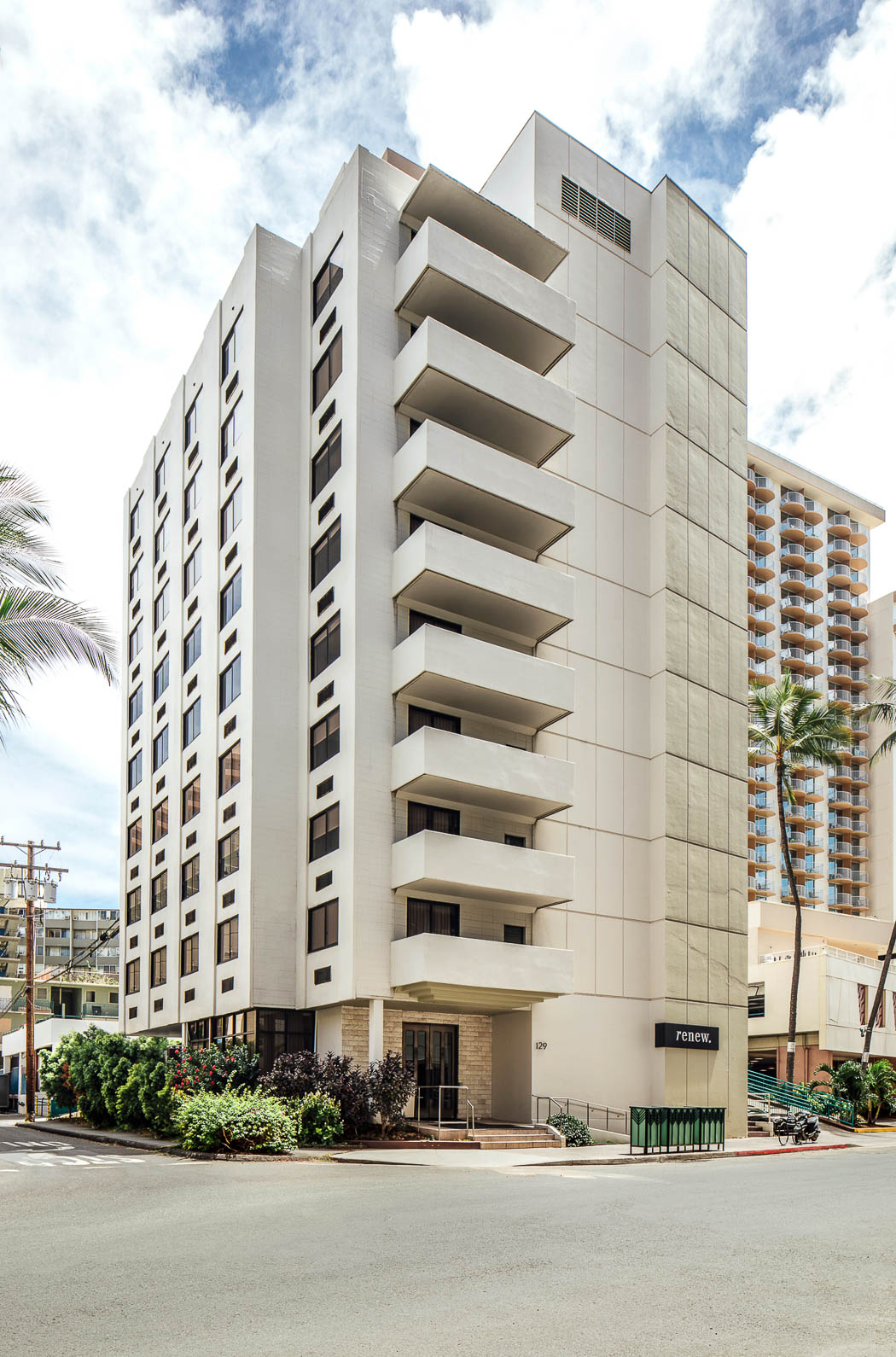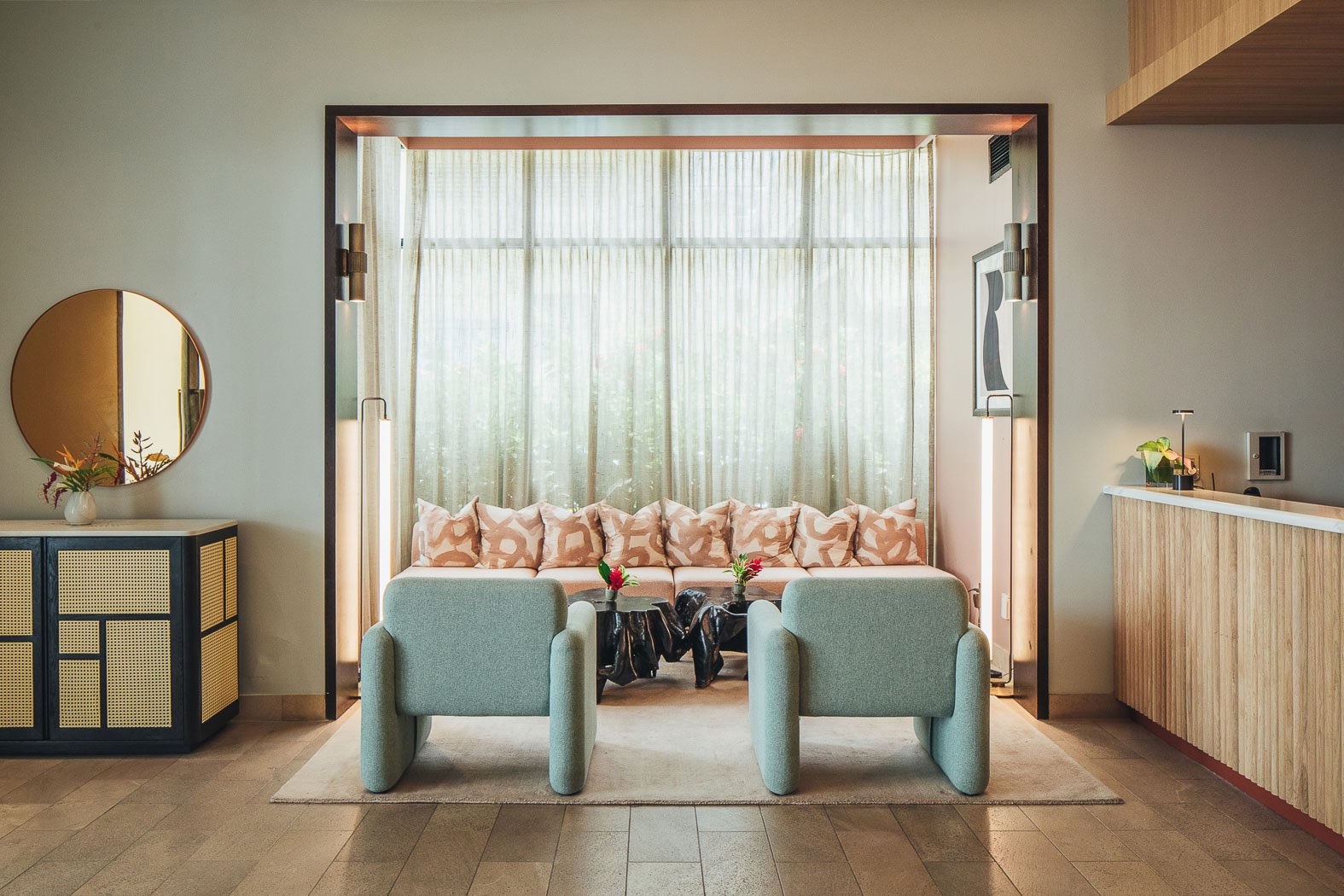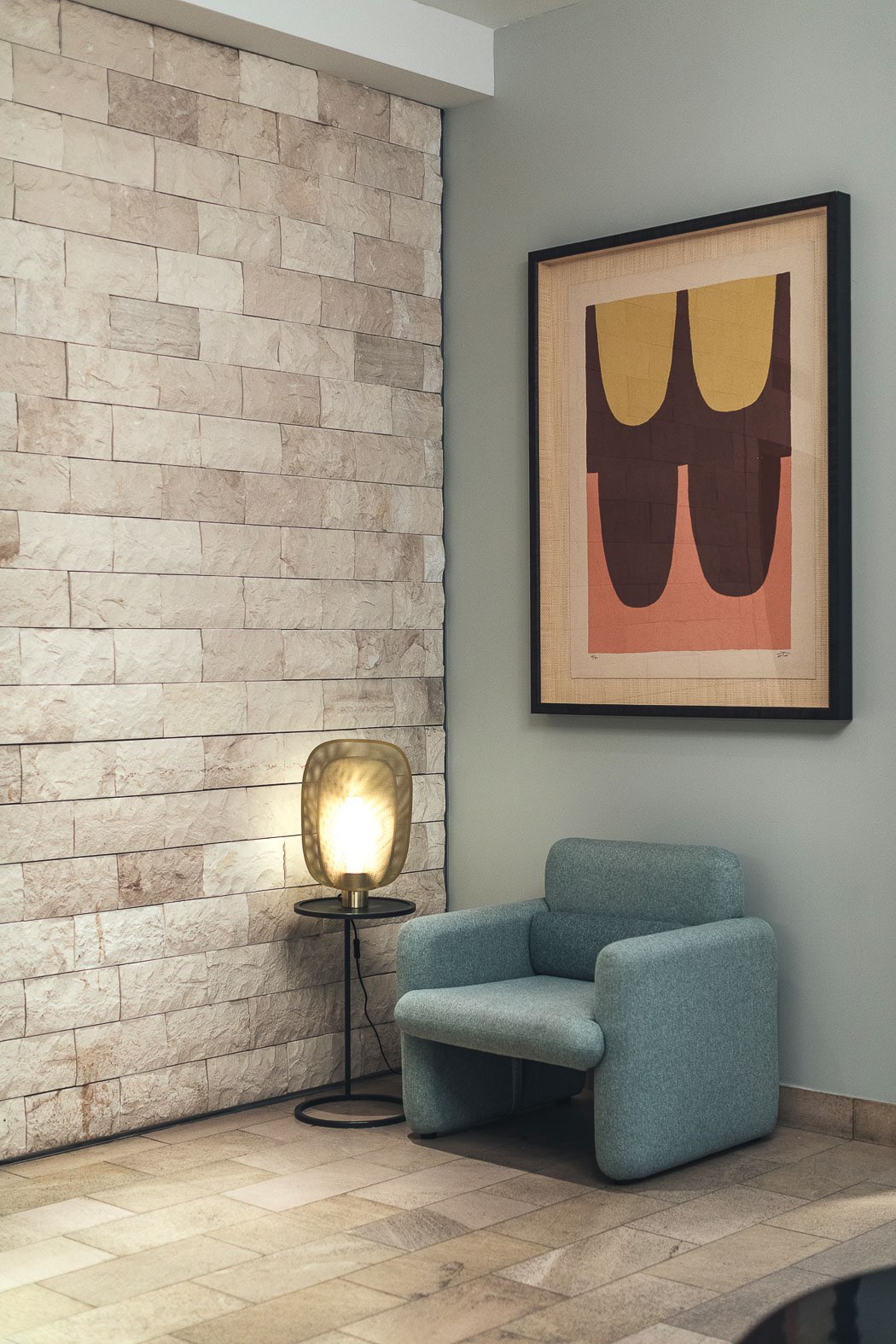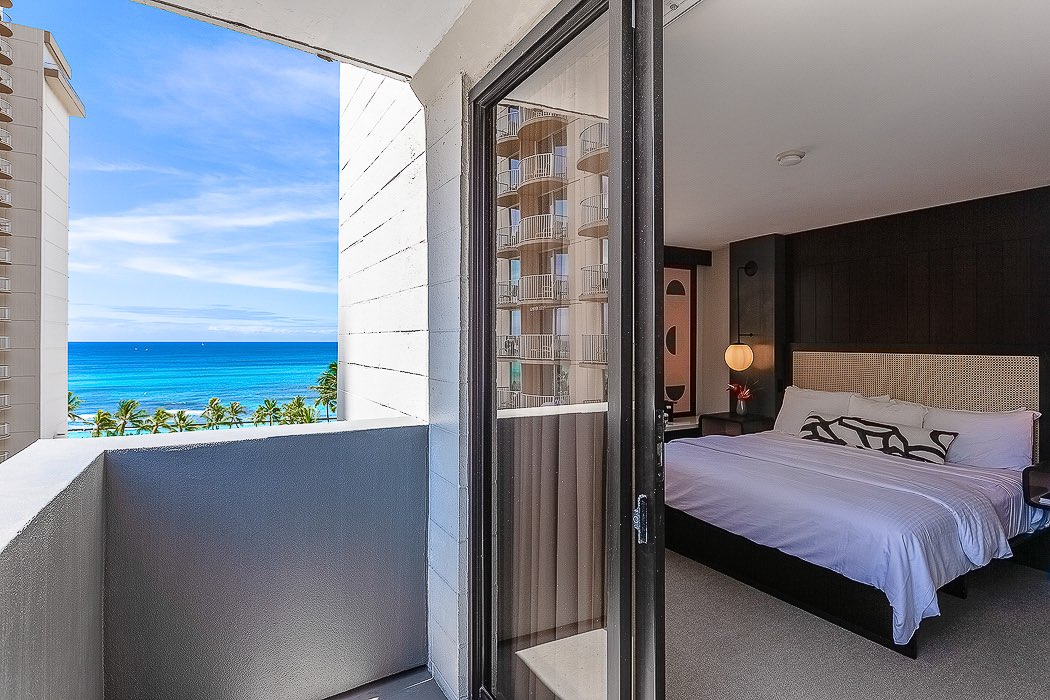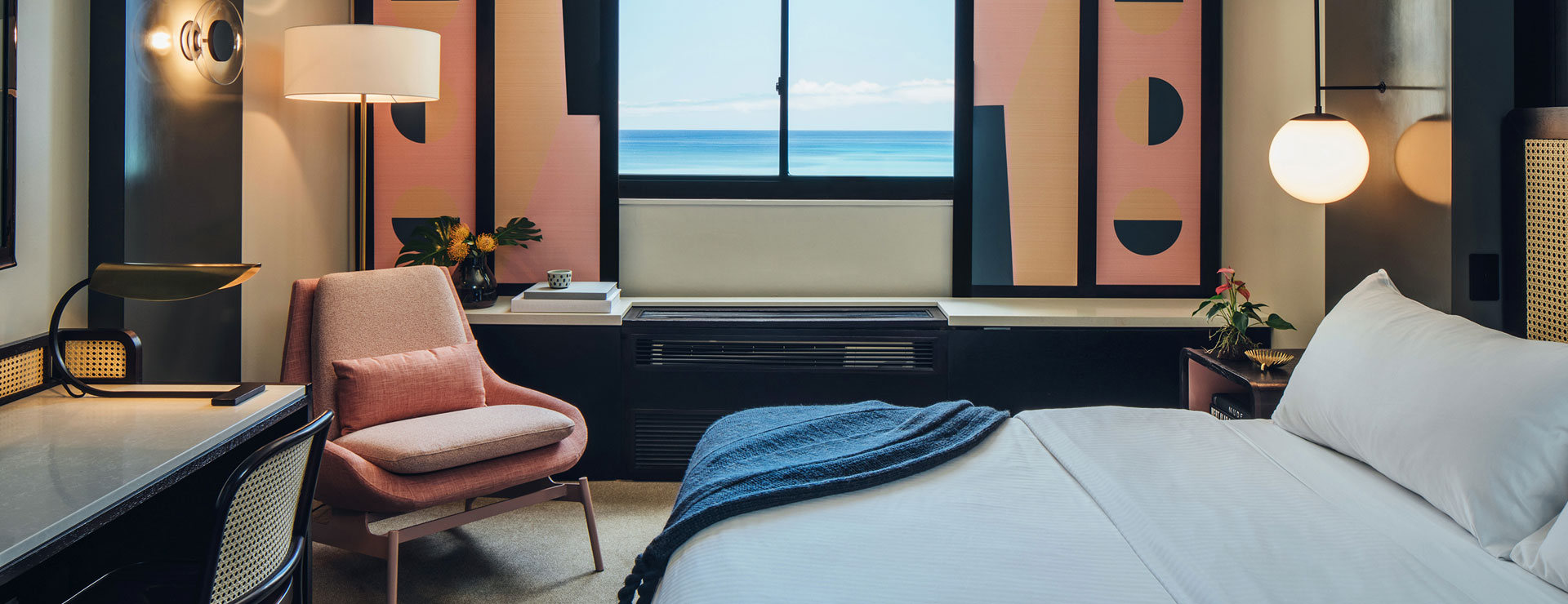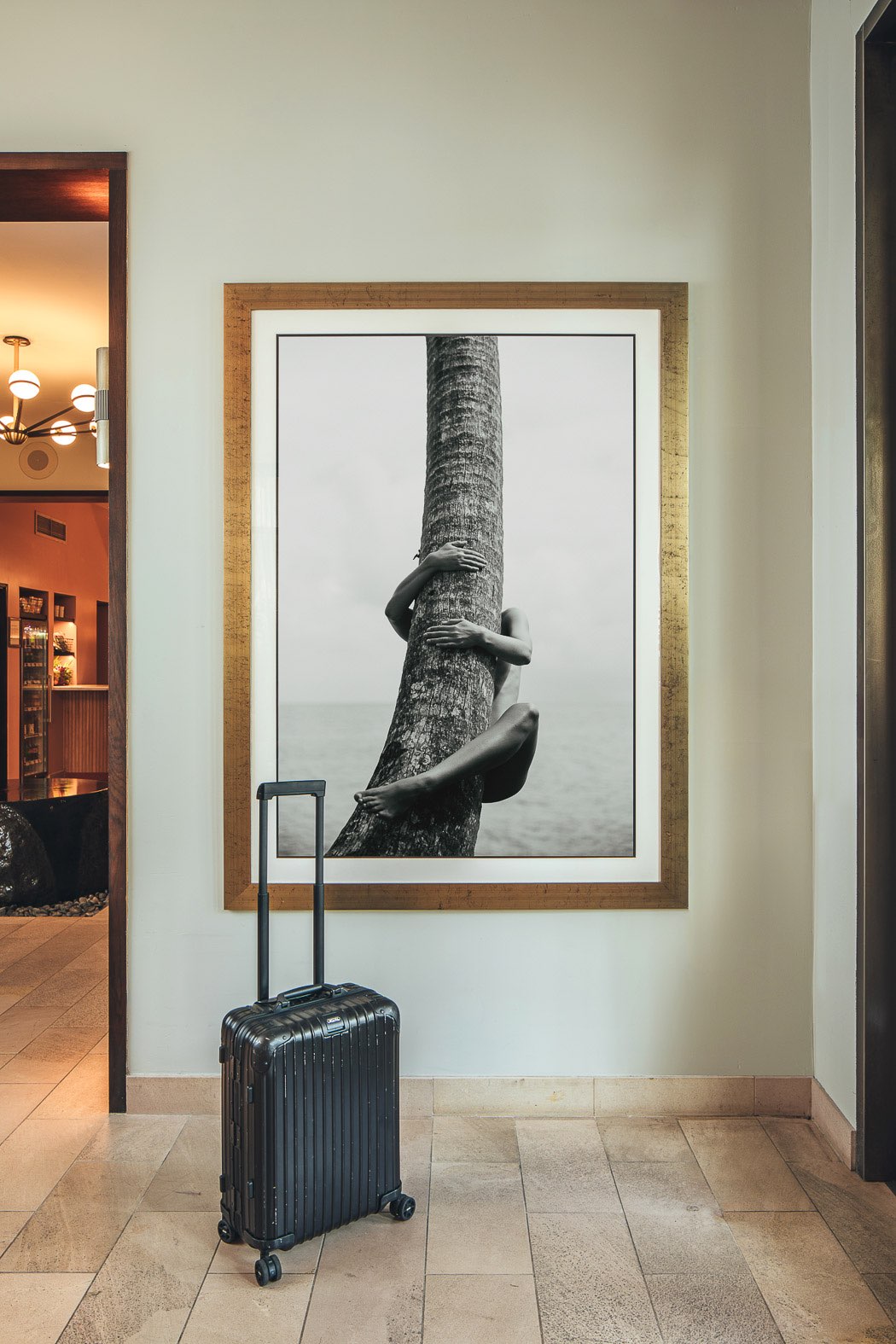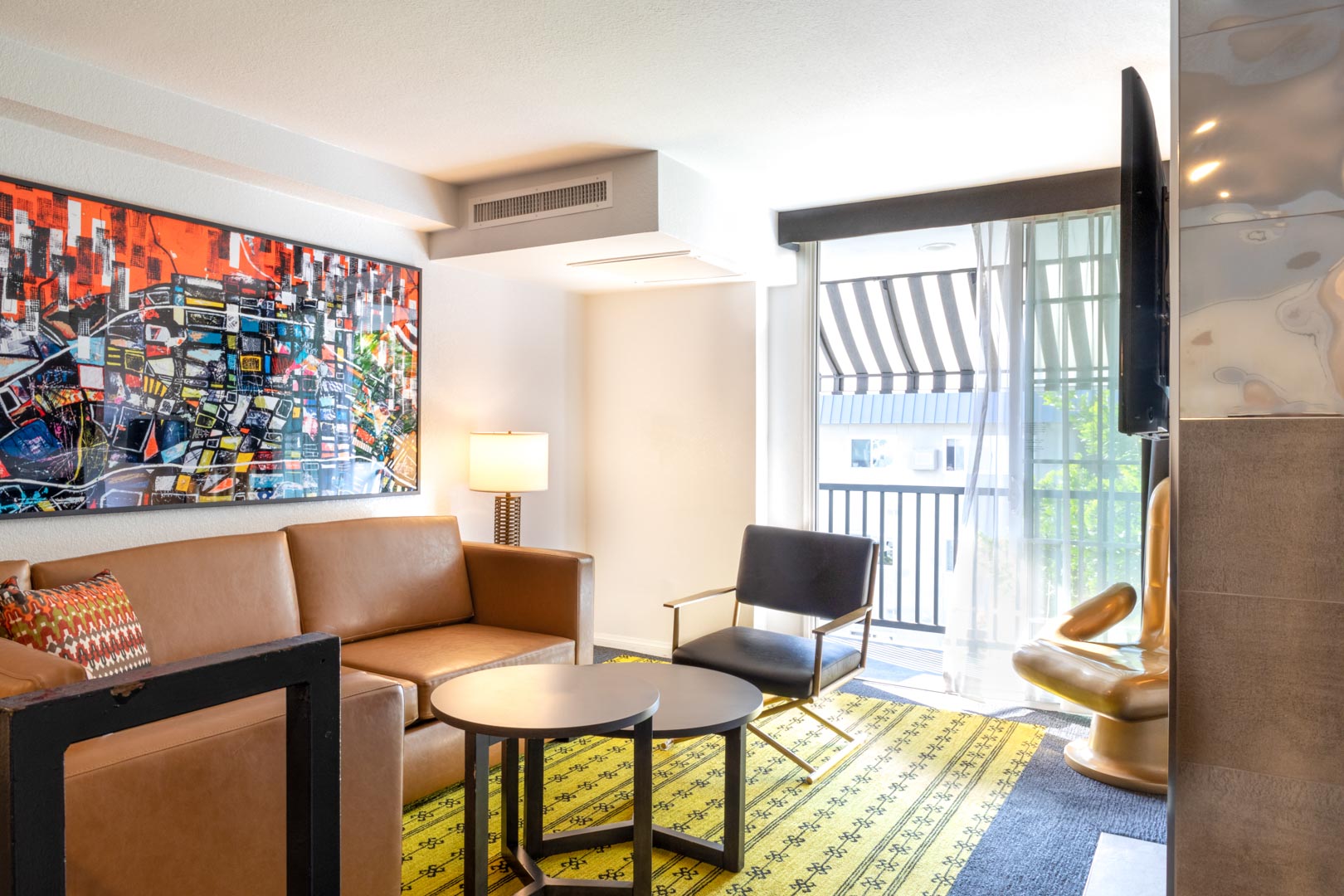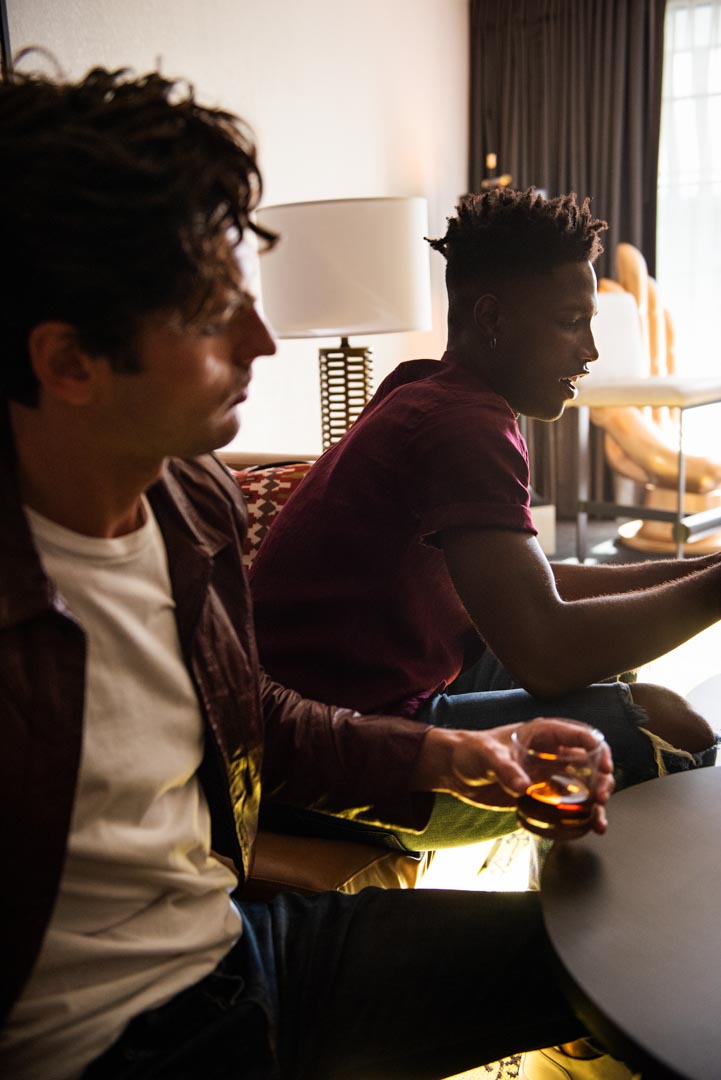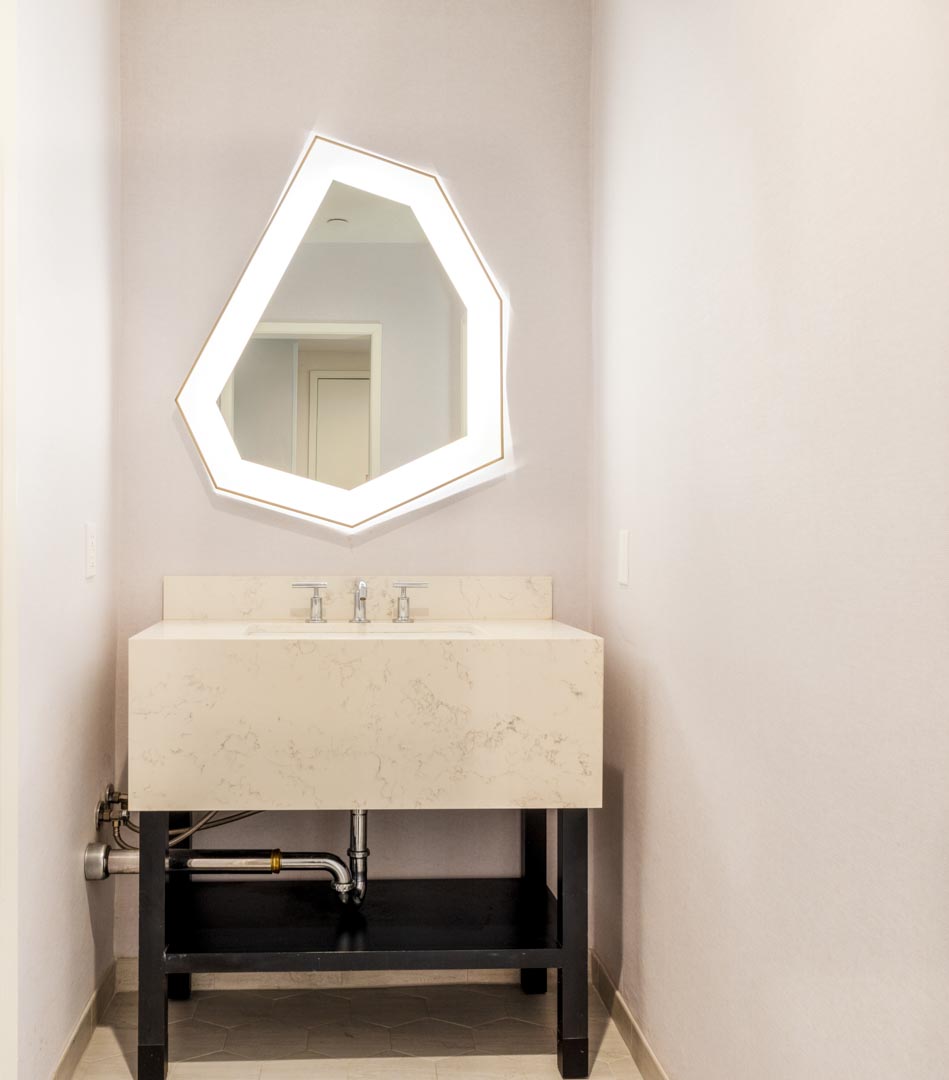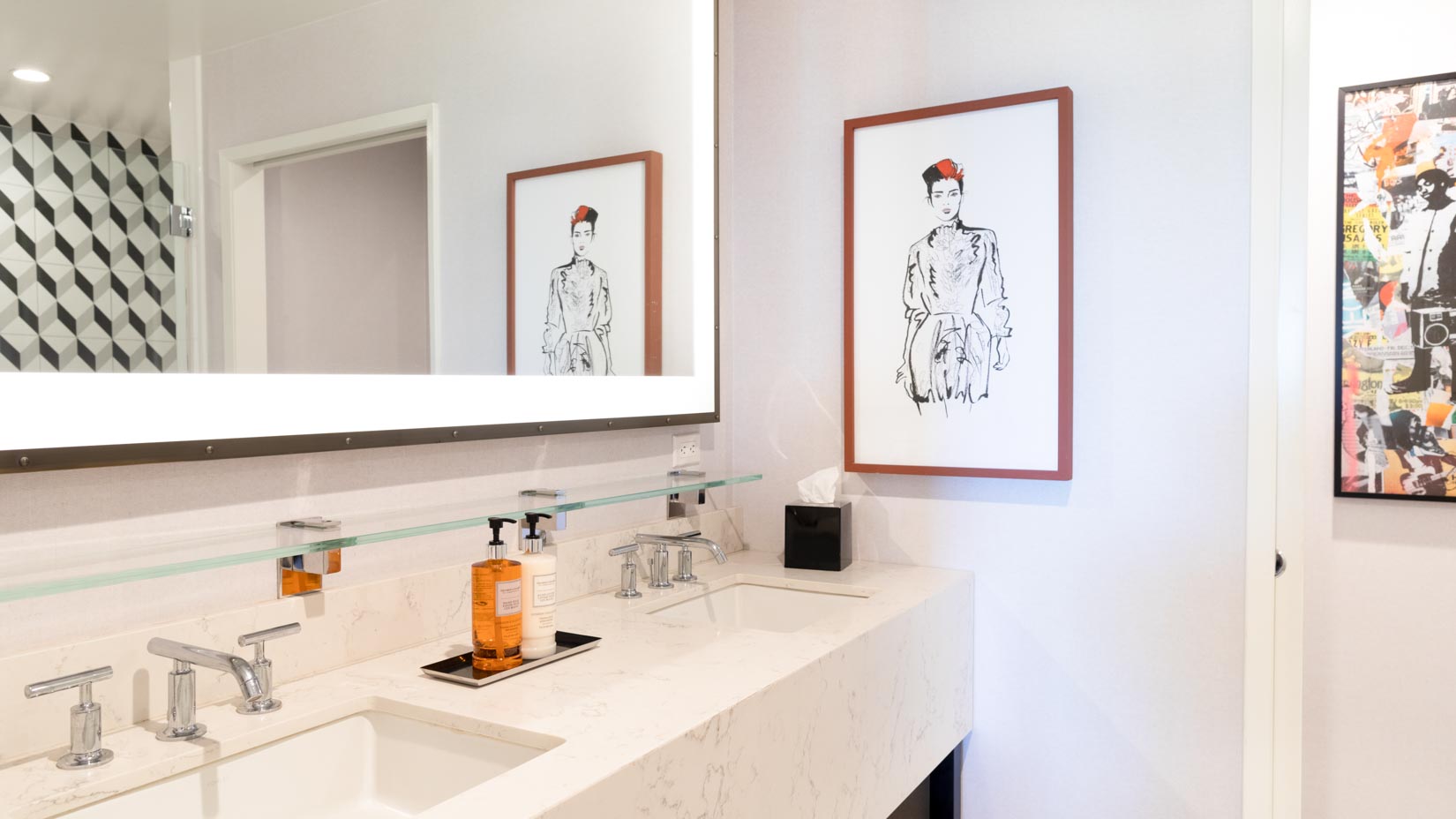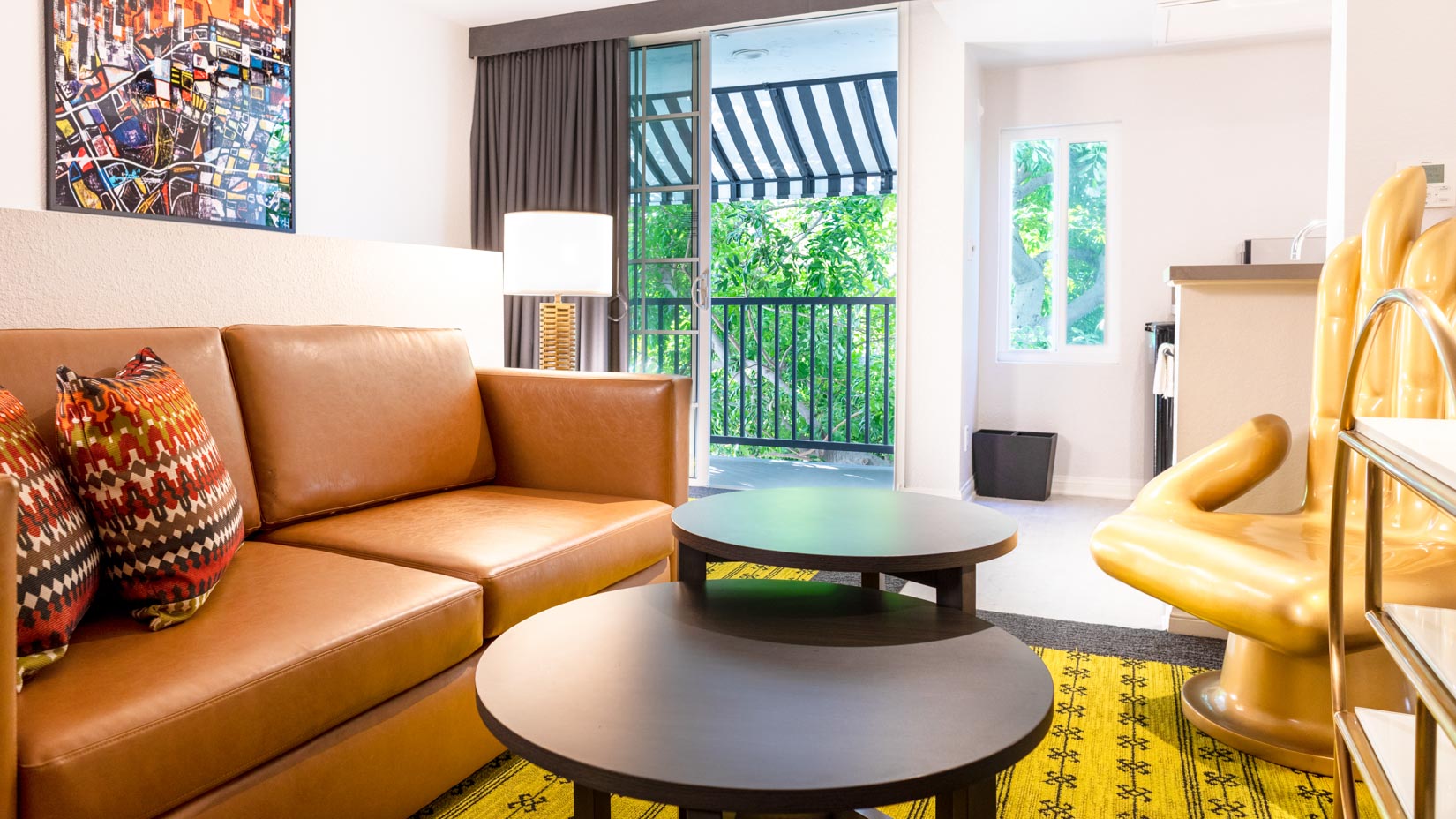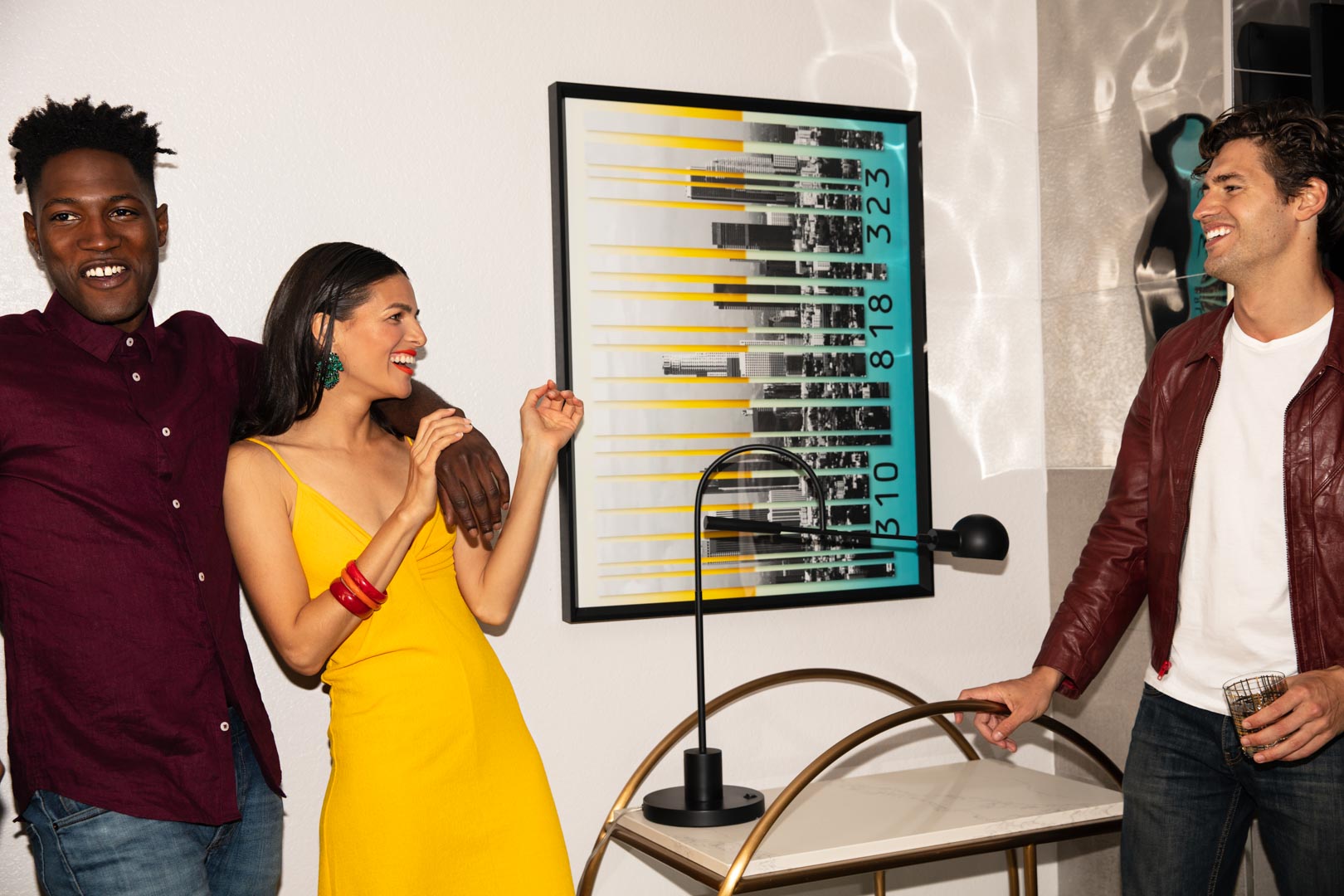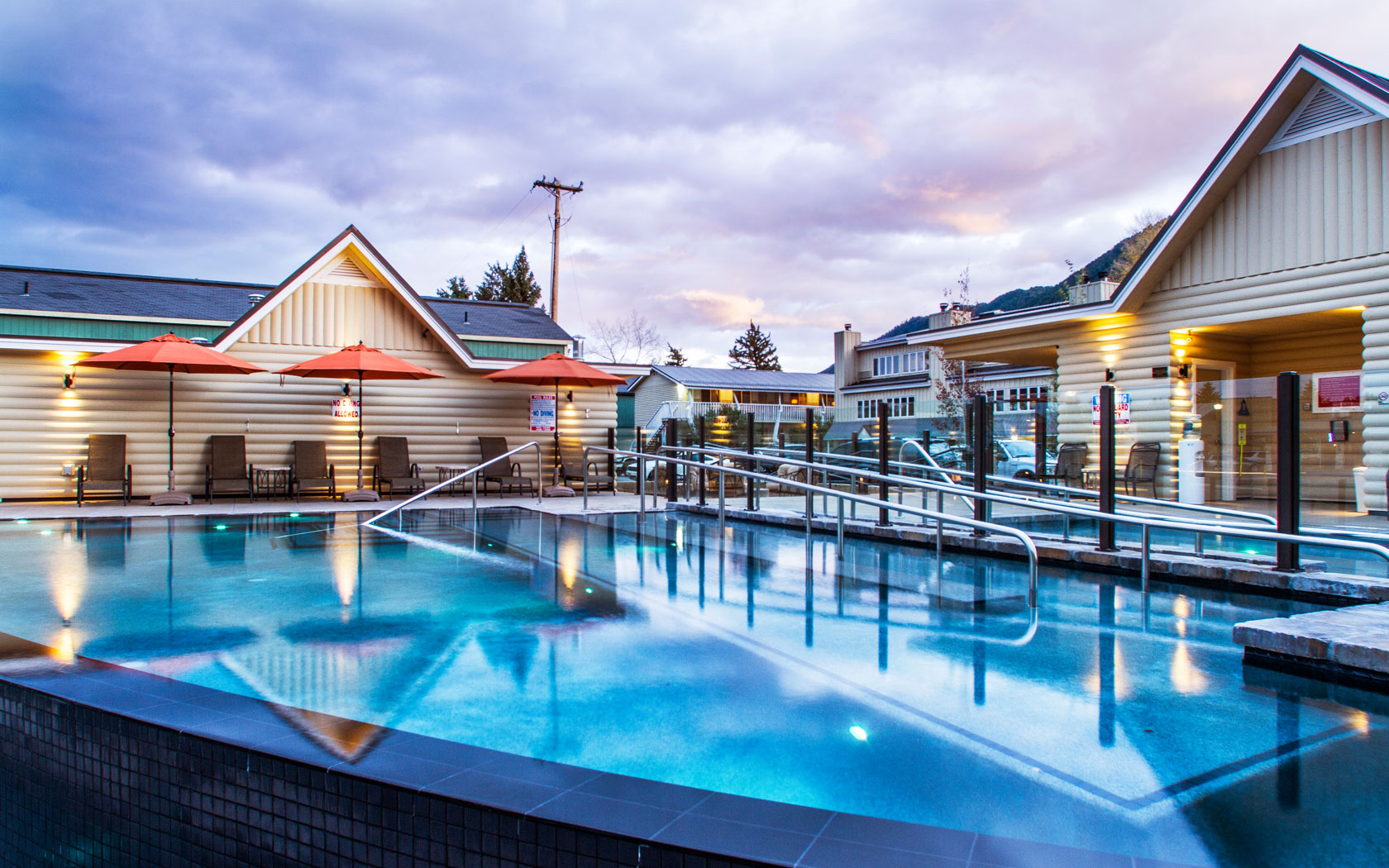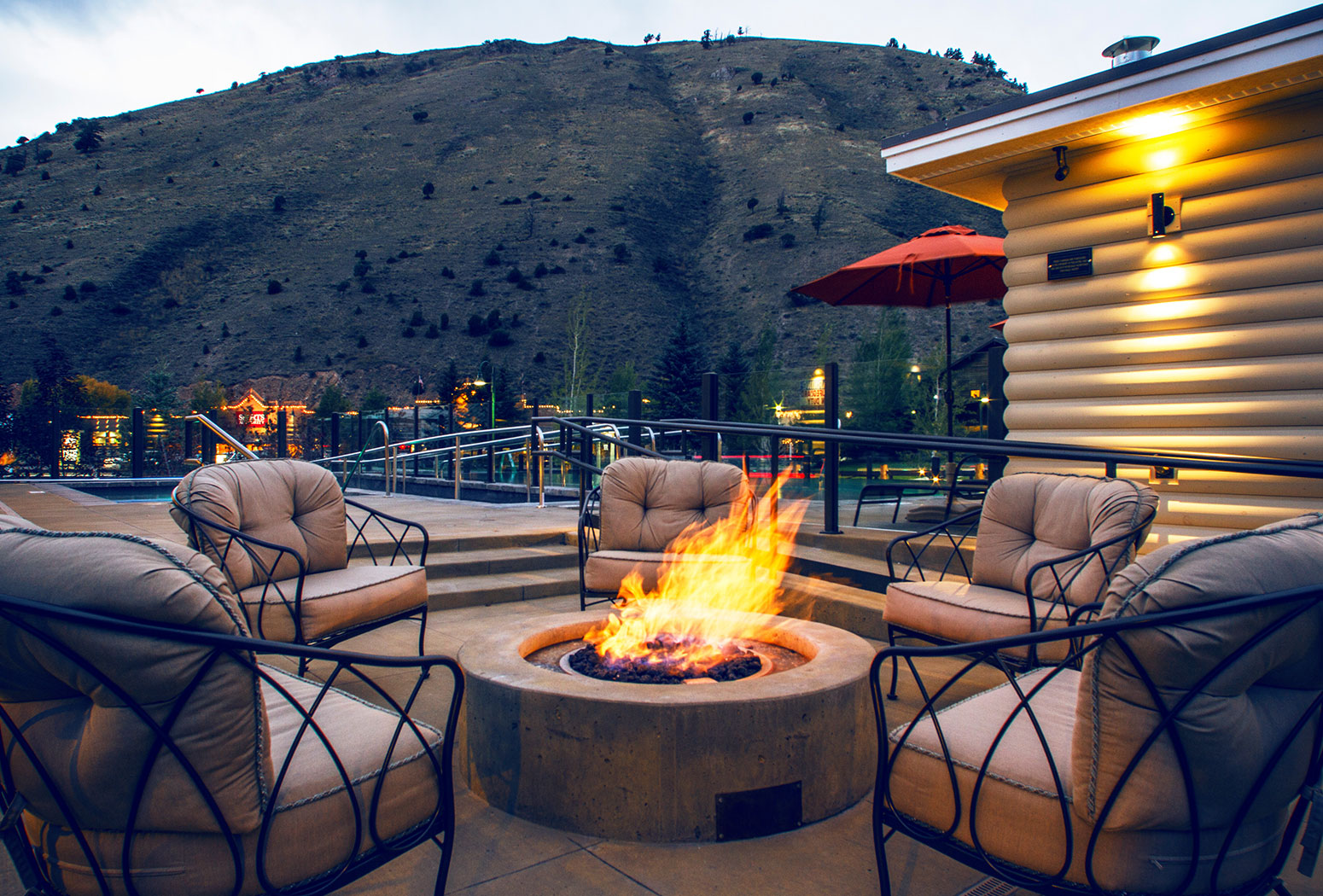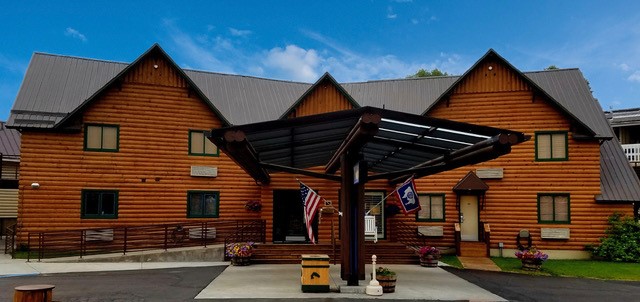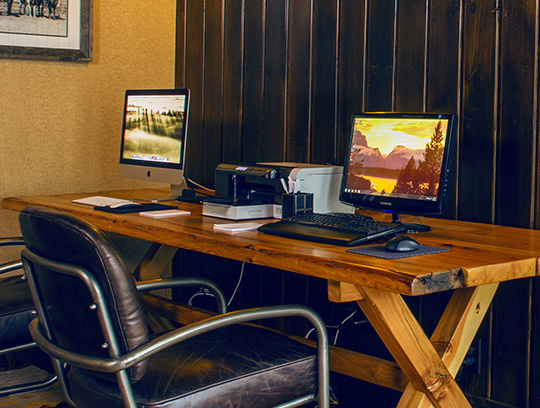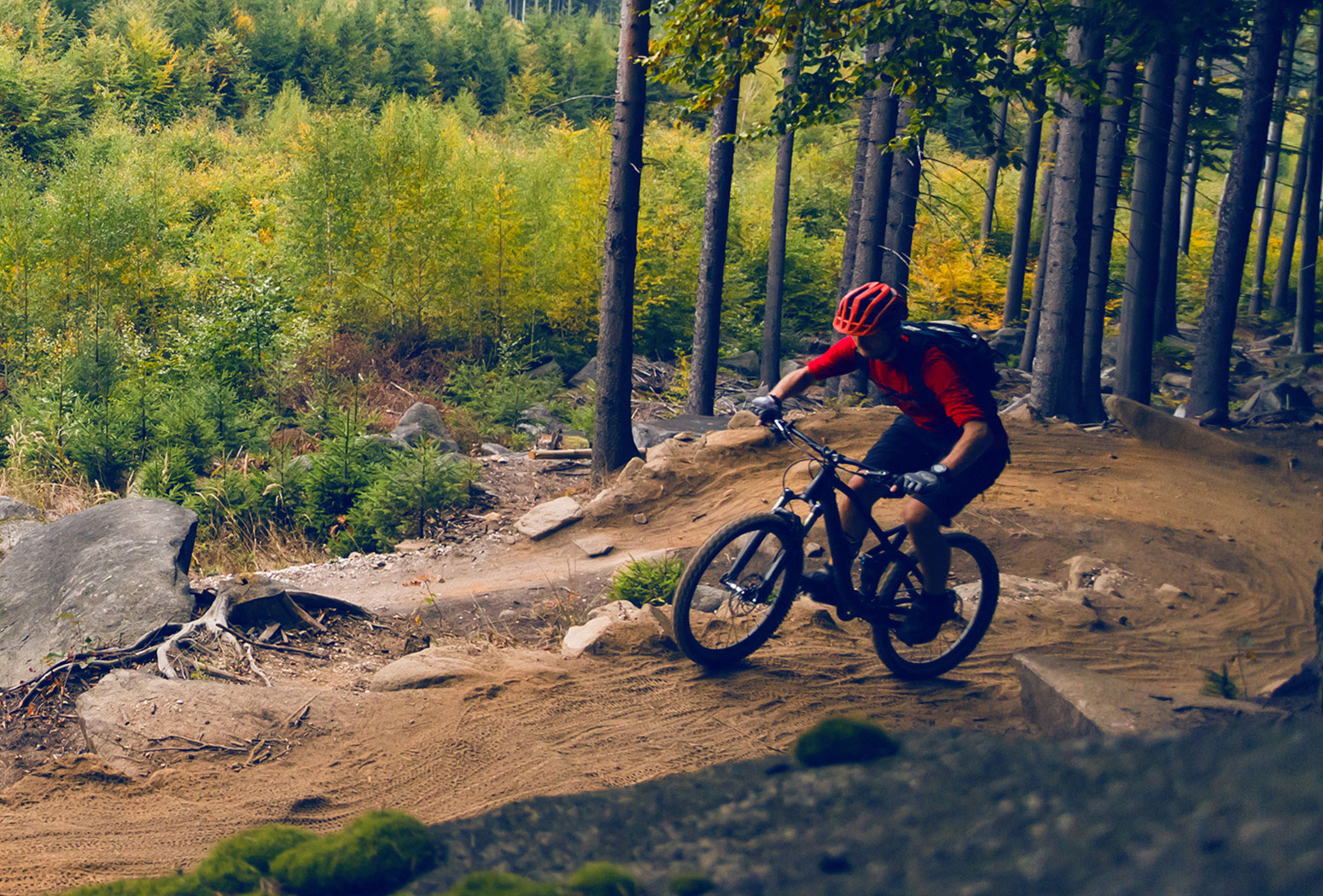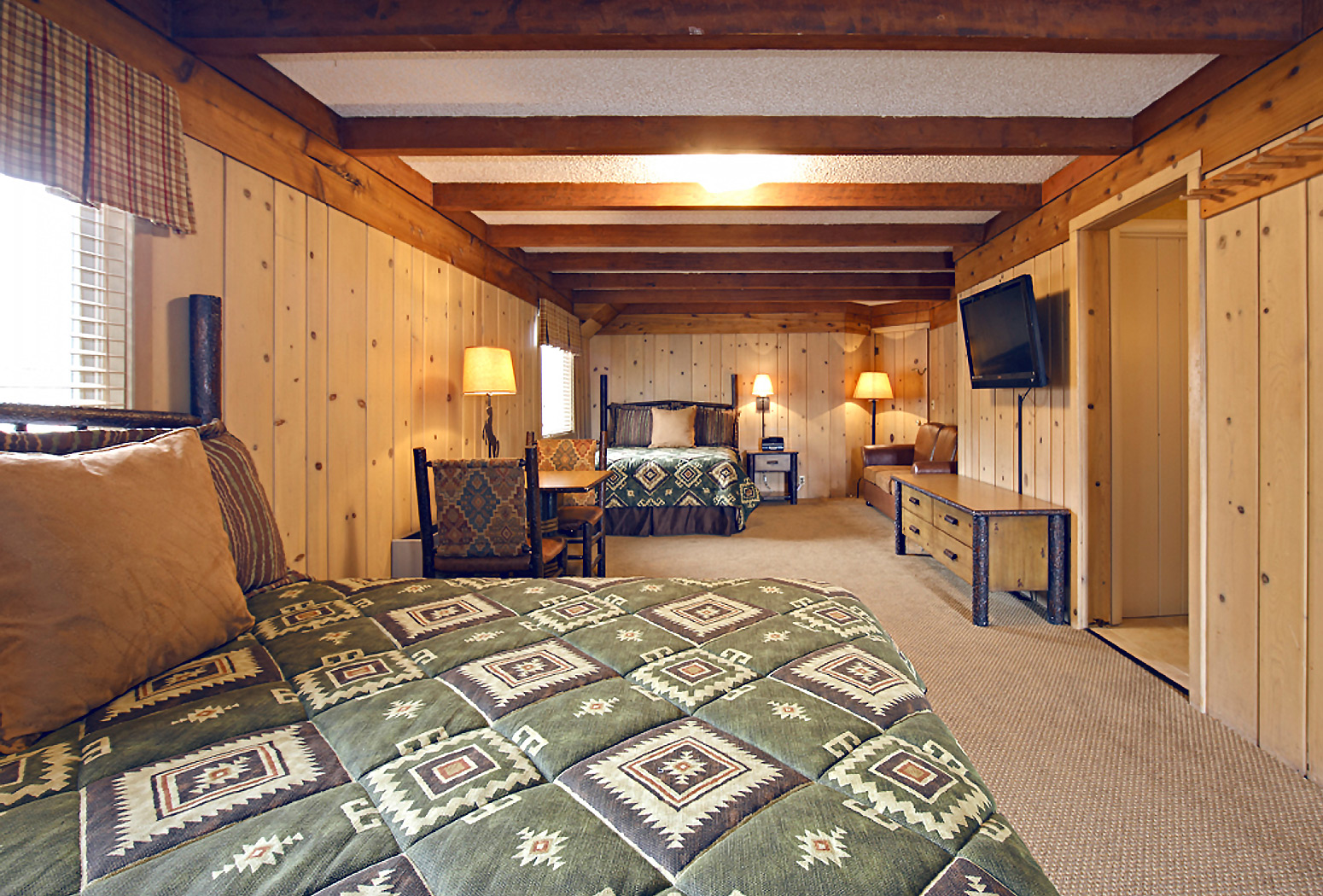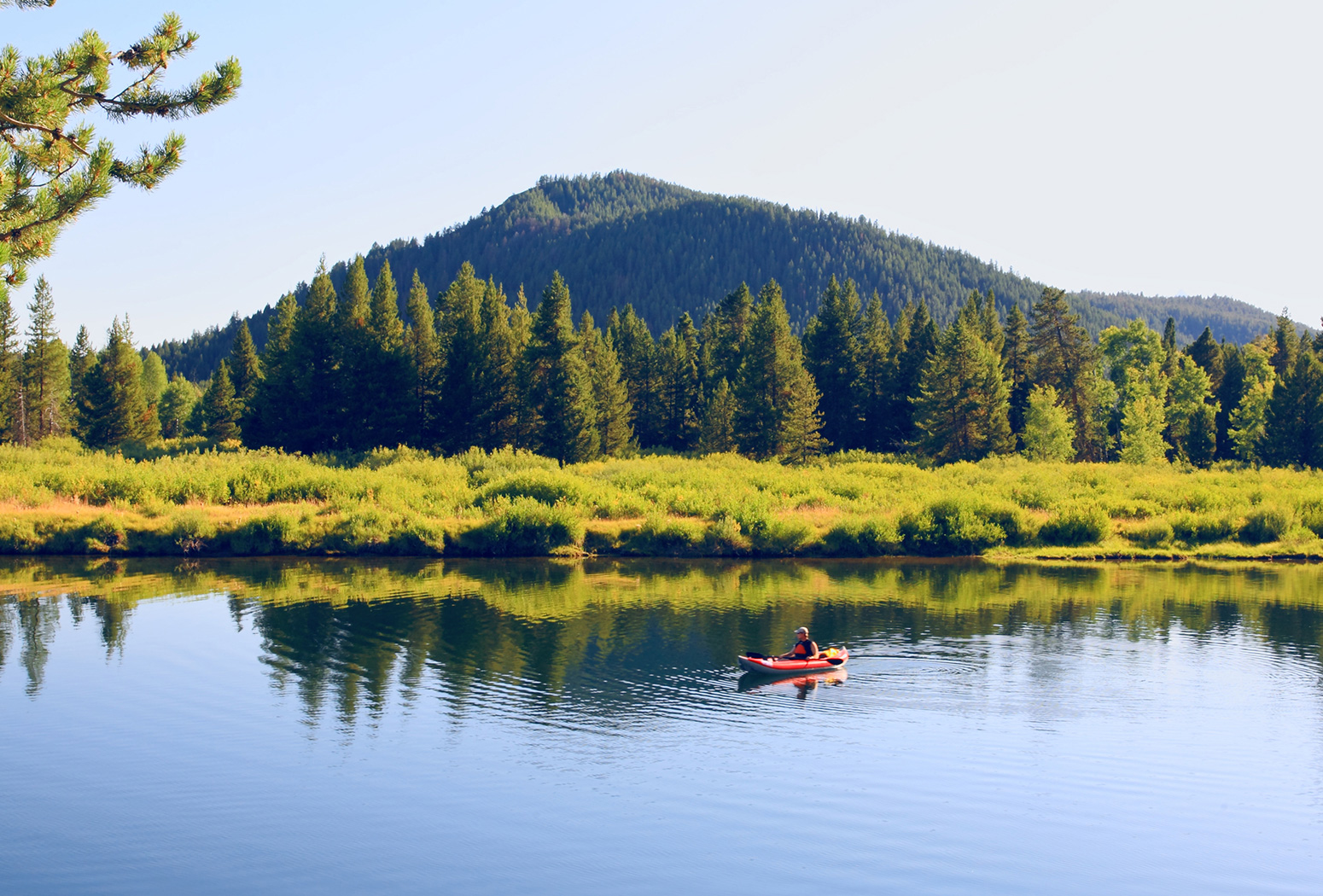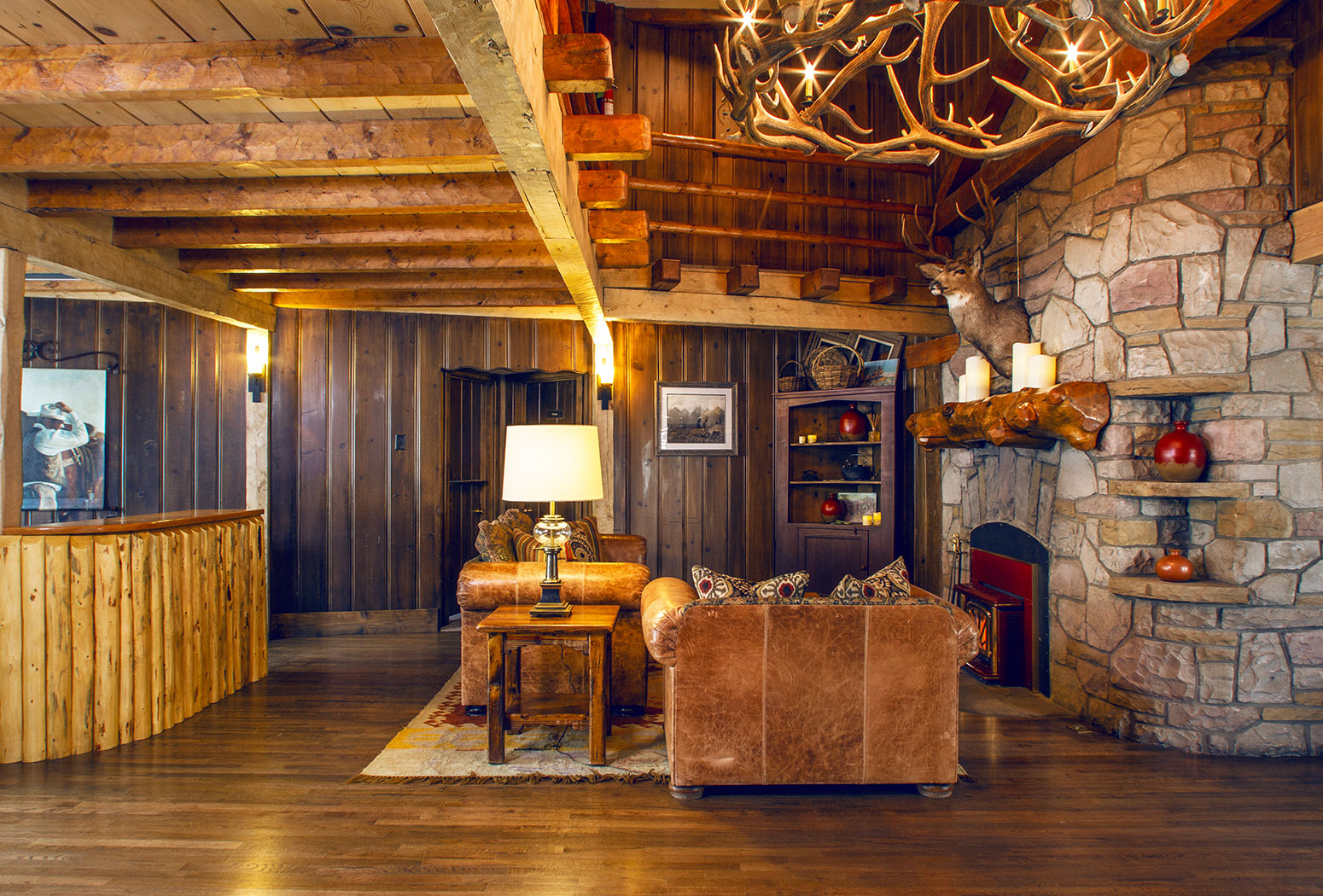Future Hospitality
podcast
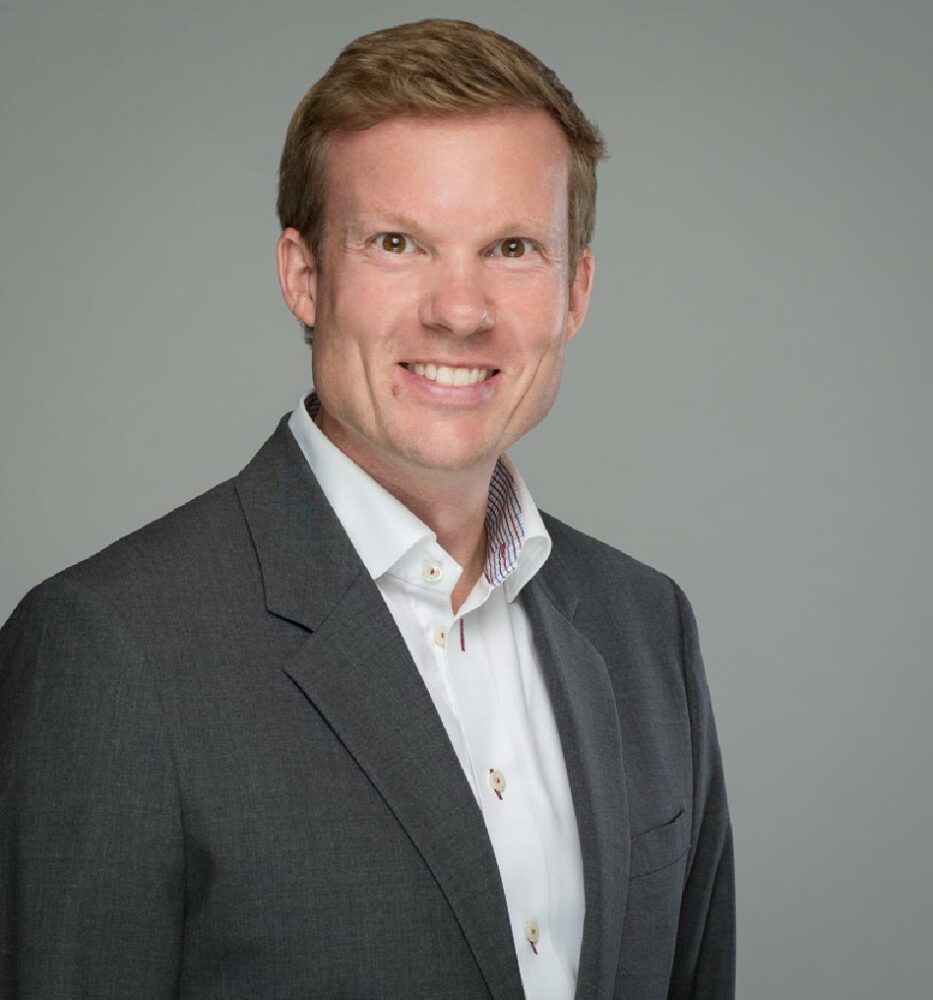
#21: Creating Properties That Mean Something to Somebody: Ben Rafter
February 24, 2021
Jeremy Wells: Ben, thank you so much for joining us today. We’re super excited to have you on the podcast.
Ben Rafter: Excited to be here. Thanks.
Jeremy Wells: Awesome. Well, we were familiar with who you are, Ben and Springboard and the awesome stuff you guys are doing. If our listeners aren’t familiar with it, maybe share a little bit about your current role at Springboard, what Springboard is all about, and kind of your journey and career leading up to where you’re at.
Ben Rafter: Sure. So Springboard is 36 properties, generally independent. We’re really a West Coast independent boutique hotel operator focused on both gateway markets, Los Angeles, San Francisco, good examples, and then a lot of leisure markets. We try really hard to fuse the two together just because you’re in LA for a business trip doesn’t mean you can’t experience something that you’d want to experience on, say, a vacation to Hawaii. So we really view ourselves as one of the, at this point, larger West Coast independent operators.
Jeremy Wells: Awesome. Yeah. So your current role at Springboard, what was like the journey for yourself over the years? How did you come to where you’re at? What did that look like, your career path, and any interesting stories along the way?
“…somewhere between 9,000 and 19,000 feet”
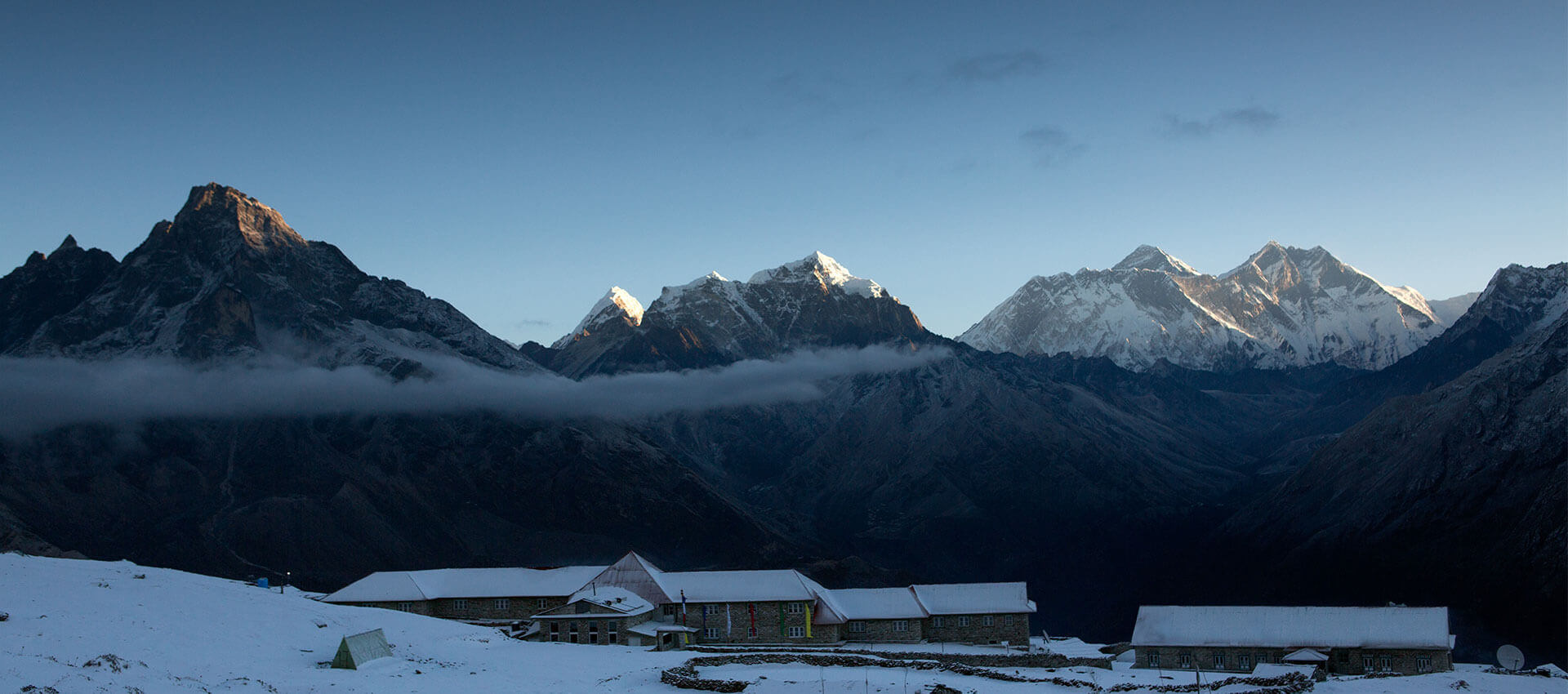
Ben Rafter: Yeah, sure, sure. I probably took one of the more interesting paths and that I was a tech guy originally. My very first job was working in databases for Westin Hotels & Resorts back when they were in Seattle. But I probably could not have told you what RevPAR meant. I was a database guy and they locked me in the room and have me work on frequency programs and things like that. Ended up leaving Westin and doing a startup that we eventually sold to Amazon and then really did technology for the next 10 years, did other startups and at one time had a team that basically just took the core technologies of Global 2000 companies and kind of ran a DNA process with them against emerging technologies and just created new ideas.
So really cutting-edge technical work, ended up selling another startup. And oddly enough, got a call from this lifelong hotelier named Mike Paulin. And he said, “What are you doing?” And I said, “Oh, I’m on a lockout. I did not compete for a year.” And he said, “Why don’t you to come to Everest with me and we’ll trek around and we’ll go to Everest base camp?” So I flew out to Lukla Airport in the Himalayas’ 9,300 feet, met with Mike. And he asked me what I thought of the hospitality industry. And I was dumb enough to open my mouth and say, “What we need to do is fuse larger than life hoteliers like yourself with kind of quant and analytic people like myself. And I think the industry would be better.” And he said, “Okay, let’s do it,” right on the spot. And for 15 days we’re trekking around the Himalayas. We kind of formed the company just right there that, somewhere between 9,000 and 19,000 feet.
Jeremy Wells: So cool.
Dustin Myers: That’s a really cool story.
Ben Rafter: Yeah. One side note I’ll add is he said, “Okay, we’ll do it your way with all your quant and analytic and a mumbo jumbo. But you’ve got to put your cell phone number in every single room so that you remember that, at the end of the day, there’s a real guest in there.” So we did. And at four or five properties, that was nothing. But eventually my cell phone number was in 11,000 rooms.
Dustin Myers: Oh my!
Jeremy Wells: That’s such a cool story.
Ben Rafter: Yeah.
Dustin Myers: So really from there, were you taking over existing projects and applying this new way of thinking in technology? Or what were some of the next steps that came out of that?
A New Approach
Ben Rafter: Yeah, that was November 2008, which most of your member was not a good time to be in, as the world was crashing down. And I actually think it helped us because a lot of hotel owners started looking at us saying, “We need to do this in a better way.” And it really worked. We took a new approach to revenue management. We took a new approach to how we measured ancillary spending and pretty much everything and could quantify it to owners. So we started picking up hotel contracts all in Hawaii, and eventually we had 56 hotels, 50 of them were in State of Hawaii, largest operator in the state by a long shot.
Dustin Myers: Wow!
Jeremy Wells: That’s cool. Yeah. As far as like where Springboard’s at now, I know last year, as I understand, Outrigger Lodging, OLS, relaunched and rebranded to Springboard. What was some of the thinking and strategy behind why you guys did that?
Ben Rafter: So Outrigger or OLS has been around for 30 years, after we sold Aqua was the name of the last company that Mr. Paulin and I created. I was looking for sort of a new platform to really try to extend what we always had wanted to do. And OLS, I ended up buying OLS and it was a great solid platform, great people. But as we infused more of these ideas about both going above and beyond for the guests, sort of the cell phone concept in the rooms and the co-op side, we just thought we wanted a name that was more reflective of who we think we are.
So we renamed the company Springboard. We were building a culture around and it’s a little more tech oriented, a little more forward-thinking, hopefully means something a little bit more than just three initials and definitely driven more by tech and analytics. That’s what really led to the change. One other thing is now that we’re back in Hawaii, OLS originally was Outrigger Lodging Services, and we have a great company in Hawaii that technically we compete with called Outrigger. So it was also trying to avoid some confusion in the market, but really we just want to reflect who we think we are as a culture now versus what might’ve been relevant 20 years ago.
Dustin Myers: Yeah, absolutely. We get the question all the time, like, “When should a company rebrand or rename or start to change things?” And I think hearing the reasoning behind that is definitely in line with how we would see that being necessary when you’ve kind of outgrown or when your name is no longer reflective of how you want people to perceive you, then it’s time to consider changes and it sounds like you guys made a good decision there.
Ben Rafter: Yeah. Thanks. Companies grow and evolve just like anybody else. And I think if you’re not thinking about those things, you’re doing yourself a disservice. Our big challenge was we were debating whether to do it in the middle of the pandemic or not. And at the end of the day, we decided, “Let’s do it. The industry needs good news. And hopefully, this is perceived as good news.” And so we went ahead and jumped in and did it and made the name change last year and really focused heavily on bringing people in who can help us start sort of building our culture and our brand from ground zero as the industry sort of repairs itself too. So it should be fun. I’m looking forward to seeing how it evolves in the next couple of years.
Dustin Myers: Absolutely. Yeah. The last 12 months have not been boring at all for our industry. So while everything is shifting and changing, I see that as a good time to take a new stand and get poised for growth in the future.
Ben Rafter: Yeah, exactly. And we took a different approach at our corporate or headquarters, if you want to call it. We decided to keep everybody on board and just really doubled down and said, “Well, we’ll have more pain in the next 6 to 12 months, but everybody,” we originally thought 6, of course, now we’re at 12, headed for 18. But everybody in the company at our corporate office gave a little bit and we kept everybody on board and they’ve actually expanded since then. And we’re really focused on kind of executing on that now, so we’re better positioned coming out.
Dustin Myers: Absolutely. I’m curious, just from the analytical and data insights that you brought to the properties that you’re working with, and you don’t have to give away all your secrets here if you don’t want to, but what are some of the major things that you could see being improved by approaching it from that angle?
We need to get in front of consumers’ way before they travel
Ben Rafter
Ben Rafter: I mean, there are hundreds and hundreds and we’re not really trying to build anything. We put together what we think is a framework of sort of here are the best in breed technologies of everything from property management systems or revenue management. One that I personally love is I think we handle content so poorly now. We don’t get content in front of consumers’ pre-stay and we don’t interact with consumers while they’re in hotels and we really have a lot of canned sort of content and then everybody’s holding social media that’s fairly boring on top of it.
I think the next 12, 18 months, and you’ve talked to some people on your various podcasts who really share the same vision. We need to fully customize content with guidebooks for real guidebooks, fully customized guidebooks for all of our destinations. And we need to get in front of consumers’ way before they travel, whether it’s a business travel or leisure travel, it doesn’t matter. And lot of people are sort of starting to explore that space, but that one’s a personal interest.
Jeremy Wells: Yeah. That’s such a huge missed opportunity for a lot of properties, I think, in the hospitality space. We have these types of conversations all the time when we’re talking about the brand and guest experience. And I think a lot of hoteliers might just envision the guest experience to only happen on property. And really, just like you just mentioned, the guest experience is happening in all different phases of the journey. From the moment they start dreaming about visiting a property or planning to the booking process, to the time between booking and their visit. And during the visit obviously and then after, there’s all these different stages of the guest journey. And I think, like you said, being able to impact some of these different stages of the guest journey would be such a huge value. And I think you’re right that technology can play a huge role in that.
Ben Rafter: Yeah. And people want to get out and about. We have a property called Renew in Hawaii. And obviously people come to Hawaii for dozens of reasons. Some people just want to sit on a beach or go to a few restaurants, but a lot of other people want to understand what Hawaii is and this property, Renew, it really had no common space. It was a small 72-room property, great location, right off of Waikiki Beach. And we flipped the whole concept around and we said, “Let’s get these people out of the hotel and specifically try to get the people out of the hotel and start experiencing things that are unique to Hawaii.” So we call it “external wellness” for lack of a better word, but with no spa or fitness center or anything.
We decided that the island was the bar fitness center and we hired a wellness concierge and partnered with lots of organizations and everything from, if you want to harvest cacao, we know how and where to do that. If you want to repair a Hawaiian fish pond, we were offering that down the list with experiences. The idea was to learn something about Hawaii that you’re interested in. A lot of those things you can’t do anywhere else in the United States or in some cases North America. And let’s make that sort of the public space of the hotel and then let’s get it in front of the people in a way that lets them explore and figure out what they want to do.
Jeremy Wells: Yeah. I think the sustainable and this idea of like transformational travel is really growing. And I think what you just described is a perfect example of that. People traveling for a purpose, to engage in their surroundings, engage with themselves, or explore something new, get a greater connection to themselves or to nature, to the culture around them. And so I think that’s really cool to hear how you guys are approaching that from a wellness and programming stand point as well. That’s really neat.
Ben Rafter: Yeah. It’s all about micro-targeting. This hotel had 72 rooms. A lot of our hotels are 150, 200 rooms. I mean, there are places and a lot of people who just want the comfort of knowing it’s the hotel equivalent of going to the cheesecake factory or something. Right? And the cheesecake factory in Hawaii is enormously successful, but we’re trying to target 72 rooms. And we want the opposite of that. We want people who, one, as you say, they’re going to leave Hawaii a better place when they got here, and two, they really want to experience what is the culture, why am I here, other than it’s 78 degrees today instead of 28.
Obviously with the pandemic, we’ve had to scale things back, but just the amount of interest in people who wanted to repair fish ponds and things was enormous. And that’s not easy work, but they leave it feeling like, “Wow! I did something and I saw how some other culture worked back several hundred years ago.”
Dustin Myers: Yeah, that’s really cool. I think in times past, there’s been a mindset of like, “Where do I want to go and do and then where am I going to stay while I’m going and doing?” But I love how you’re kind of transforming the stay experience into the doing and the seeing and the experiencing and opting for instead of a stale workout room in the basement, getting people out and truly experiencing the area, creating lifelong memories really, and baking that into the entire hospitality experience.
We’re learning on the fly how to serve up this content to people.
Ben Rafter
Ben Rafter: Yeah, exactly. Back in the day, you would go to your hotel room. And again, there’s a book that was printed by a bunch of advertisers that would show you where the nearest Louis Vuitton is. And it was all static content and none of it was customized. We’re learning on the fly how to serve up this content to people. But the industry needs to go to almost the opposite of that book, which is the content is real, it’s custom to that hotel, which the guests has picked for a reason. And most importantly, we can get it in front of the guest in a way that lets them get interested. Nine out of ten guests are not interested in restoring a Hawaiian fish pond. But if you serve up 30 or 40 truly unique experiences, they’re going to say like, “Yeah, this one’s for me.” And it’s just wonderful when they get back to the hotel and are sharing these memories that we’ve helped be a part of. And again, it’s not for everybody, but we’re only targeting it in most cases, a couple of hundred rooms here.
Dustin Myers: From a technology standpoint, how are you guys better customizing the experience for the guests? Do you guys have an app? You mentioned social media, but how are you delivering that at an individualized level?
The Guest Journey
Ben Rafter: So we call it the “Guest Journey” and what we’re trying to do is as soon as that guest books with us, and some guests don’t want to communicate, they do just want to show up at the hotel and they’ll figure it out when they get here. But as soon as that guest books and a lot of these leisure markets even now have a fairly long lead time, we start trying to interact a little bit with them. What are you interested in? Why are you here? We’re trying to effectively profile Facebook or Amazon or somebody like that has this driving it. And ultimately, when they get here, hopefully either technology or via a live person, we know enough to say, “Hey, you might want to do this.” It’s not all about going to cocoa farms and things like that. This may be a restaurant that you’re interested in.
Basically, it’s a constant feedback loop with the guests that continues after they leave. And we’ve learned and added new experiences based on guests coming to us and saying, “Hey, I wish you would have thought about this.” Right? The challenging part is everybody’s sensitive to content and information right now. So we’re trying to do it in a way where the guest is really providing an information and we’re taking what we know about a market and then serving that back to them. And it’ll start five, seven, nine weeks before their stay. And then of course they’ll go all the way through the state and afterwards.
Jeremy Wells: Yeah. I mean, you’ve mentioned before. In our previous conversation or I might’ve read it on your website somewhere, but I think the term you’re trying to create properties, Springboard is trying to create properties, it means something to somebody. And I think some of the things you’ve already described and kind of show how you’re approaching that. But do you have any other kind of unique or cool examples or case studies of how you’ve approached this at a property level as well?
Ben Rafter: Yeah. It all goes back to this kind of funny how things in my life go back to a trip to Nepal, but a lot of it goes back to what this gentleman, Mike Paulin, told me in terms of, “You can’t ever forget that at the end of the day you have a real live person.” And in some cases say for their entire lives to come to a place like Hawaii or Sedona or New York or wherever, and getting a little bit off-topic here. So we’re always going to try to customize that experience.
One thing we’re doing with, say, take social media is we got rid of both the idea of let’s just do a handful of social media posts that have a property and we’ll get an influencer there and we’ll have a nice whiteboard behind it with our logo and stuff like that. We also got rid of the idea of using an agency. And take West Hollywood, where we have four properties, we hired a person to basically go create our own neighborhood guide and her job, if I were 23 it can be a great job, is learn the property, learn the neighborhood, write unique content about the neighborhood, make sure it is fully customized so that we can take it. And when we know somebody is interested in X and not Y, we can customize that, and again, do the opposite of that book that sits in your room that was printed a year ago and it’s full of advertisements.
And then that of course leads to better social, at least a better content, at least a better website. It leads to better guest interaction and everything. We’re also trying to make it a little more adventurous. When I first came to Hawaii, I remember one day I wanted to go on a hike. And as you can guess, given the theme so far, I love hiking and I went to the concierge of the particular hotel that I’m staying at. And I said, “I want to go on a hike and I really love hiking. So make it something rigorous.” And she handed me this photocopied sheet of a paved trail to a waterfall. And I said, “Oh, that’s not really what I’m looking for.” And she’s like, “that’s the only hike that we can recommend.”
And so of course I did what all of us would do, probably I went out to the valets and one of the valet says, “Oh, this is a great hike. You’ll love it.” And came back four hours later with a cut on my leg and I’m all muddy and soaking wet because it was raining in the mountains. And the guy looks at me and, “Was that a great hike?” And I said, “Yeah, that was the best hike I could have experienced.” And we’re trying to offer that experience. So when you go to Sedona, we’re not going to give you, “Here’s random trail X, Y, Z.” And when you come to Hawaii and you ask about food, we’re not going to send you, unless you want to go to the cheesecake factory. We’re probably not going to send you this cheesecake factory. We’re going to say Chinatown has this great hole-in-the-wall dumpling shop and sort of what in my mind holds it all together is again customizing these neighborhood guides ourselves and then not being afraid to serve them up to the customer.
We’re all terrified now being sued because you gave a hiking trail that is a ski equivalent of a Black Diamond or even a Blue Square one. And the guy sprained his ankle. In my experience with 20 million guests at this point, probably we’ve been sued zero times for recommending that Black Diamond hiking trail.
Jeremy Wells: Yeah. What you just described, I mean, I had a similar experience with one of our clients actually. Before we started working with them, I visited the property and did kind of a little bit of a secret shopper type of approach to just staying at the property, interacting with it and asking the front desk again. I asked for a recommendation on like a nice local restaurant. She kind of looked at me with a blank stare and she actually recommended, I think it was Applebee’s to me because they were just right down the road. And I was like, “Well, that’s not really like a local…” So I think there’s tons of value in like spending the extra little effort to do some digging into like the local culture, the local scene, like opportunities, depending on the type of person, creating personas around the people that might be visiting your property and define these types of personas, figure out content or things in content that they would like or they’d be interested in or adventures they’d be interested in. And I love it. You guys are doing that and like merging that with your operations, your guest experience, the technology that you’re integrating. That’s really cool to hear how you guys are on kind of the cutting edge of that right now.
Ben Rafter: Yeah. And there’s a lot of learning on the way, but at first, I agree completely, the Applebee’s examples of a classic one because the food and beverage is often where you see it. You’re going to recommend the place down the street or the hotel’s restaurant. But we’ve done a lot of experiments along the way. What we wanted to do first is have we go to a lot of these properties and we’d get the whole team together. And I’m like, “Who’s the foodie here and who’s the hiker here and who’s the best surfer here?” And we thought we’d have sort of an experienced team. And that I think it was a good idea, but it really didn’t work. We’re going to give GoPros to people and then give them the content from the GoPros, as long as we had a right to use it too and incorporate into the websites and again, a little bit too much. And so we scaled back and said, “Let’s first focus on building the content ourselves, but with somebody,” it gets back to the person I described for West Hollywood, “with somebody whose job it is to say, ‘I’m going to go out and find the things in the neighborhood, in the culture, on the island or in the city that we think our guests are going to want to do.’” And we’ll expand it from there once we get our arms around it.
Dustin Myers: Yeah. I love that grassroots, just kind of boots on the ground, figuring it out and making it authentic and it not coming from an office a thousand miles away just trying to figure out something. But I love that approach. I think that’s a really good way to get authentic results.
“You can’t create a brand or a hotel experience from the fifth floor of an office building.”
Ben Rafter
Ben Rafter: Yeah. I always laugh and say, “You can’t create a brand or a hotel experience from the fifth floor of an office building.” You’ve got to be out there doing it, personal opinion. And again, that’s the great thing about hotel industry is there are so many different types of guests. There are millions of guests who want to go to a hotel where that hotel is the same every single time and great for them. Again, we’re able to target the guests that wants the opposite of that. And the wonderful thing is there’s an audience for both.
Dustin Myers: Yeah, absolutely. So what’s on the horizon for Springboard? Do you guys have any renovations or changes or new properties coming up?
We’re just absolutely not going to take our foot off the gas.
Ben Rafter
Ben Rafter: Yeah. We’ve added almost 2000 rooms during the pandemic, which is not a lot for a major brand, but that’s a lot for us. And great markets like Jackson Hole and Park City, Hawaii 2, 3 Hawaii Islands. And so again, we think those markets are great for what we’re trying to do. We have six new builds that we’re working on with various partners. Everything from the first new full-service property in Anchorage and many, many years to a property in Los Angeles that’s well located where some of the neighborhoods in Los Angeles are moving.
So I mean, going back to my tech roots again, we’re just absolutely not going to take our foot off the gas. And that’s the only thing we know. And the people who have joined the company have embraced that and that they kind of love it. And in my mind, if you’re not going to be going full speed all the time, you’re just sort of wasting your time. So we’re implementing new ideas. We’re figuring out new technologies. We’re constantly sort of adding to that framework of best of breed or removing some of them, frankly, that are stopping the investments because of the pandemic and finding new ways to interact with guests.
I’d like the company first off to be sized well enough that we don’t lose sight of all these things we’ve talked about here. I don’t think we ever get to 500 properties because we just wouldn’t be able to do what we do.
Ben Rafter
I’d like to be in the long-term, I’d like the company first off to be sized well enough that we don’t lose sight of all these things we’ve talked about here. I don’t think we ever get to 500 properties because we just wouldn’t be able to do what we do. But I also would like to get to the point where when people are thinking about great independent operators and particularly great independent operators on the West Coast or in these gateway markets or leisure markets. They’re thinking about us.
Jeremy Wells: Well, I would definitely say that you’re on the right path there. And it’s been really cool to get to know you and learn more about Springboard and all the exciting things that you guys are doing. As we kind of end here, I’d like to just know like looking into the future, we always like to ask our guests, what’s on the horizon for you and your team? What are you excited about for the future of the industry, the hospitality, travel, tourism industry? Whether it’s personal, professional, or anything, is there anything that kind of gets you up and gets you excited in the morning every day looking ahead?
There’s enormous uncertainty right now, which I view as opportunity
Ben Rafter
Ben Rafter: It’s kind of cliché, but we’re trying to have fun, and that’s the most important thing. You can’t change the fact that we have things like the pandemic that we’re dealing with. And I also love the uncertainty of where we’re going next. And a lot of people talk to us, “What’s the strategy?” Well, the strategy broadly is X, but we’ll work, we’ll move within that, and there’s enormous uncertainty right now, which I view as opportunity. But beyond the guest lifecycle and the customization, I would say we in hotels have so much data that we can learn from and use. And I really want to push that data, not only to help a hotel make more money and give back more to the community in a way that’s good for the guest, but to keep pushing hard on that customized experience.
You take Hawaii again, you hit 10 million visitors in Hawaii prior to the pandemic. And why would you want to look at hotels and a guide and content that’s the same for everyone? We’re going to take those 10 million visitors and just still it to one. To me, that all rules around content and data and that’s what I’m excited about.
Jeremy Wells: That’s awesome.
Ben Rafter: I’m not going to be the guy who says, “We need to get our pre-occupied room cost down by two sets and we need to do that.” But that’s somebody else’s role.
Jeremy Wells: Right. Cool. Well, I’ve really enjoyed the conversation, Ben, and it’s been really inspiring. How can people get ahold of you guys at Springboard or find out more?
Ben Rafter: Well, obviously it’s springboardhospitality.com. And as we’ve learned, I’m more than happy to give my cell phone number out to everybody, 808-349-0670. Give me a call. Great thing is the way to learn something is to learn from other people because they’re out there experiencing it, right? You can only do so much yourself. So I really love the potential for the industry coming out of this as we work through this obviously challenging times.
Jeremy Wells: Totally. Yep. Awesome. Well, Ben, thank you so much for joining us. It was a great conversation and until we chat again. Have a good one.
Ben Rafter: Great. Thank you. Wonderful.
